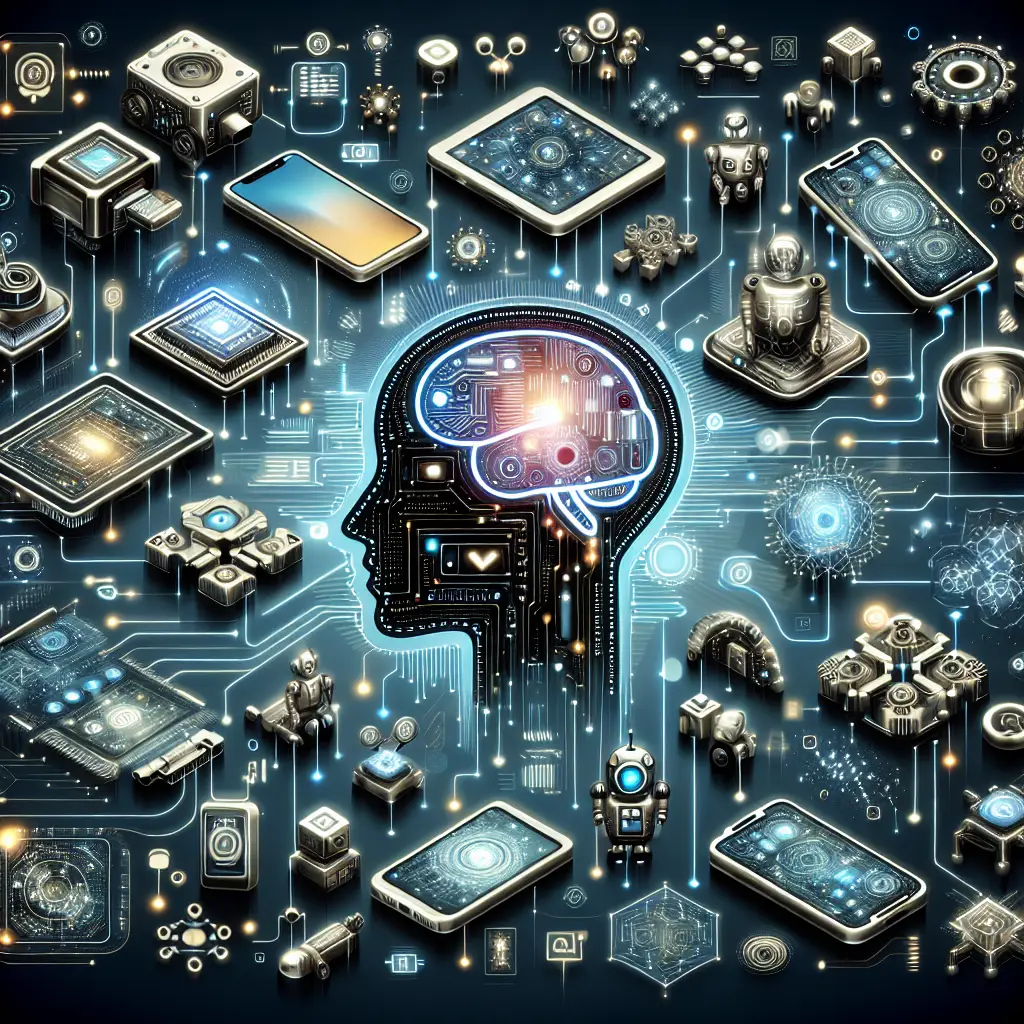As we stand on the threshold of a new era in technological innovation, the fusion of Artificial Intelligence (AI) and mobile application technology heralds unprecedented breakthroughs. The future of apps in AI is a topic of great interest, with profound implications for every aspect of human life and business.
The integration of AI in apps has shifted the way developers build applications and how consumers use them. AI technology has improved apps’ self-learning algorithms, enhancing user experience and personalizing user interaction.
Future developments in the sector are linked to deeper AI integration across app ecosystems and improved AI app development models. Furthermore, innovative applications are expected to advance AI algorithms, foster actionable intelligence, and create more productive app-focused AI technologies.
AI Integration Across App Ecosystems
AI integration within app ecosystems provides a comprehensive vision for enhancing user interaction and engagement. Artificial Intelligence, along with Machine Learning (ML), augments and redefines app features and functionality. With AI and ML, apps become smarter and intuitive, leading to an enriched user experience.
AI’s impact spans across industries, from healthcare applications providing diagnostic support and treatment recommendations, to retail applications offering personalized shopping experiences, and social media apps curating tailored content feeds. The seamless integration of AI across these ecosystems allows app interfaces to adapt to user needs, providing anticipatory user assistance and personalized interactions.
Experts envisage the future app development methodology to involve AI throughout the entire lifecycle, from ideation and design to deployment and post-deployment maintenance.
Improved AI App Development Models
Emerging trends point towards a more sophisticated and efficient AI app development process — facilitated by AutoML, or Automated Machine Learning. AutoML allows developers to automate the iterative processes involved in applying machine learning to real-world problems.
As AI app development gets more automated, it will lead to the creation of smarter, more complex applications, with lower dependence on human intervention and lesser development time. The result will be high-performing apps with greater usability and more diverse functionalities.
One example is the recent surge in natural language understanding (NLU) applications. These apps use an AI-based approach to understand, analyze, and generate human language in a valuable way. The ability to communicate with users in a natural, conversational manner will be a crucial aspect of future apps in AI.
Ai algorithms
The foundation of any AI application rests on its algorithms. Machine Learning and Deep Learning algorithms are the backbones of AI applications today. As AI app development evolves, AI algorithms are expected to become more sophisticated to handle complex, high-volume tasks.
One of the areas of focus will be on Reinforcement Learning (RL), a type of algorithm that learns from its mistakes and successes. RL is becoming increasingly popular for designing applications that need to make a series of decisions, such as gaming or self-driving vehicles.
Another aspect that needs attention is the development of Explainable AI (XAI). As AI integrates more deeply with our lives, the demand for transparent and interpretable AI models is growing. XAI provides clear, understandable explanations for AI actions, ensuring ethical and unbiased AI decision-making.
Fostering Actionable Intelligence
While trivial applications of AI are commonplace, the future of AI in apps lies in creating actionable intelligence. Rather than just providing users with data, future apps could offer insights and predictive analytics to guide users’ decisions.
For instance, healthcare apps could use AI to monitor patients’ vitals 24/7. Based on collected data, it could predict potential health problems before they escalate, saving lives in the process. Similarly, finance apps with predictive models could offer investment advice tailored to an individual’s financial condition and long-term goals.
Productive Application of AI Technologies
Emerging technologies like Augmented Reality (AR), Virtual Reality (VR), and Blockchain are being combined with AI in innovative ways, leading to transformative applications. AI, combined with AR and VR, can mimic real-world experiences, creating more interactive and immersive app experiences.
The integration of AI with Blockchain is another area of immense potential. Blockchain’s decentralized nature can augment AI applications by offering better data security, transparency, and interconnectivity.
To summarize, the future of apps in AI is on the precipice of revolutionary strides, promising an integration that is more intuitive, engaging, and intelligent. The new era will further blur the line between humans and technology, influencing every facet of life and augmenting human experience. From AI integration across app ecosystems to fostering actionable intelligence, the scope is towering and the possibilities endless.
As we proceed into this new epoch, we must tread gently, maintaining an ethical and responsible approach towards developing AI applications. Ensuring the development of transparent, explainable AI applications is a fundamental thread running through all these future visions. It is this, combined with increased automation and innovative applications of AI technology, which will shape the future of apps in the world of Artificial Intelligence.
Share this content:
